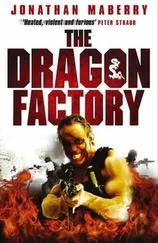The surrounding countryside rose steeply from the river and clearings for the small holdings around the settlement were a testament to sheer hard work. The natural growth which had to be removed before the soil could be tilled was a staggering five hundred tonnes per hectare. Ring-barked trees two hundred feet high stood like dead sentinels, while from their trunks huge strips of bark whispered and flapped in the wind. On the ground below cows grazed in paddocks sown with English grasses, coxfoot and white york, which provided fodder and hay for the winter. The rich virgin soil was deep-loamed and full of nutrients; at milking time, milch cows came in from the runs with full udders.
But despite this appearance of a tranquil farming community, the rising ground and huge trees made each acre taken from the forest a triumph over the forces of nature. The small community clung to the banks of the Kermandie River, and the wild country stretching towards the Hartz Mountains was not yet penetrated by settlers.
These forbidding parts of the interior were mostly occupied by isolated communities of itinerant timber getters, many of Irish origin, who lived further upriver and were said to be half wild and dangerous and unlikely to welcome strangers in their midst.
All male convicts who arrived in the colony would spend some time at hard labour producing timber and from that time on, any misdemeanour would result in a further stint on a timber gang. So, almost by definition, the worst offenders learned the most about the skill of the sawing pit, splitting logs and getting timber. In addition, the Irish, many of whom lacked the basic skills to work in towns, and being usually among the most intractable of convicts and also Roman Catholics in an overwhelmingly Protestant community, found timber getting was the only lawful skill they possessed upon emancipation. For many, isolation became their only way of avoiding trouble.
They seldom ventured with their families into the nearby towns and their children were wild things. They would score the timber, each with his individual mark and the number of his agent, and float it downriver. Every few weeks one of their kind might venture quietly into the small settlement and collect what was owing to them all. He might stop at the tavern for a few drinks, though he would usually buy what he needed of brandy and rum to take back into the forest, and leave with no more than a grunt to the publican.
It was claimed that should the law be foolish enough to wander into a timber camp, and if the timber getters should first see the law and the law not see them, then the law would be unlikely to see the sunset on the river again. It was a brave set of troopers or special constables who ventured out from the police station at South-port to patrol the small, scattered and isolated communities who lived in the dense, dark forests. And those who did travelled on horseback, so that they could more easily cover the ground or avoid a surprise attack.
Though these backwoodsmen would come out of the forest in winter to work at the Recherche Bay whaling stations during the peak season, they still kept to themselves, but should they drink, they turned into the very devil himself. The money they made during this period was spent in provisioning at the general store which they took back into the forests for the summer months.
As well, in the summer, escaped convicts and wild men roamed the mountain country. Food was relatively easy to get in the form of small animals and the easily captured native hen. In the winter they came nearer to the towns to raid the small farms and take a sheep or even a calf or pig, and if the property were not well guarded, or the owner away, to rape any women or children they would find. These were men outside the law and, like the timber getters, they lived lonely and brutal lives deep in the forests and mountains. They left the timber getters alone unless they should find one on his own, when they would murder him for his boots or axe or some other possession.
The bullock driver took Mary directly to the front of the tavern to avoid the mud. From the moment they entered the outskirts of the little town dozens of urchins, all with black mud caked up to their knees, had followed the cart and rudely yelled questions at Mary. But now they stood around shyly as she alighted and, first jumping a small mud pool, walked onto the verandah of the public house. It was the largest building in town, though it too was built of bark, but featured at one end a wall of stone containing a great high chimney which promised a hearth in the interior of splendid proportions.
Mary bid the driver wait and entered the tavern. At first, the smoke, smell and noise overwhelmed her senses. But when her eyes became accustomed to the dark she saw it to be a large rectangular room with a crowded bar running the full length of one side. The only natural light entering the room was from three small windows set up on the wall opposite the bar, this so that they should not be easily broken if a fight broke out.
The hearth at one end was as grand in size as it promised to be from the outside, but its tall chimney had nevertheless been badly designed. Smoke filled the room so that, with the addition of half a hundred pipes and cigars, it was far past the point of comfort for both the eyes and the nose. The low ceiling was long since blackened by the constant fumes and added to the dingy appearance of the place.
Several card tables occupied the centre of the room and wooden benches were placed against the outside walls, and all were occupied by human forms who, from the noxious smell they emitted, had not washed in a year. Men stood everywhere drinking beer and rum, while the players at the card tables with neat stacks of coins at their side must have found it difficult to communicate the least instruction in such an awful din. Mary observed that there were no women to be seen, not even a barmaid behind the counter.
As she walked in, there was an instant lull in the hubbub as the rough men standing and sitting everywhere appraised her. Eyes red from smoke and drinking followed her as she moved over to the bar, and two men leaning upon it stepped aside to let her in.
'Is there a publican?' Mary asked.
This, for some reason, caused the men within the room to explode with laughter.
'Aye!' said a voice as soon as the laughter had died down. It came from a door set into the centre of the wall behind the bar and, at the same instant, a big, burly man with a completely flat nose and eyes stretched to slits with puffed-up scar tissue made his appearance. As he came closer Mary saw that his ears, too, had the cauliflower appearance of a rough goer. She smiled nervously as he approached her and thought him ideally suited to his surroundings.
'You must forgive the men, not too many o' the fair sex do come in 'ere, miss,' he said, drying his hands on his dirty apron. 'Gin is it?'
'Ginger beer,' Mary said.
The publican looked somewhat embarrassed. 'Don't 'ave much call for ginger beer 'ere, miss.'
'Best rum, half and half and half a tot,' Mary pointed to a clay pitcher, 'if that be water.'
'Aye,' the publican said and took down a bottle of rum from the shelf behind him and poured a half measure into a glass, topping it with water from the jug.
Mary's call for best rum seemed to amuse the men and a second wave of laughter filled the room.
'Now, now, we'll have none o' that!' the publican called sharply, whereupon the laughter died down abruptly.
'Mary Abacus, from the Potato Factory, maybe you've heard o' my beer?' Mary announced to the publican, her voice firm, not betraying the nervousness she felt within.
'By Jesus, yes!' the publican exclaimed, plainly astonished. There was a murmur around the room and quite suddenly the mood changed. Mary sensed a new tone of respect from the drinkers.
Читать дальше












